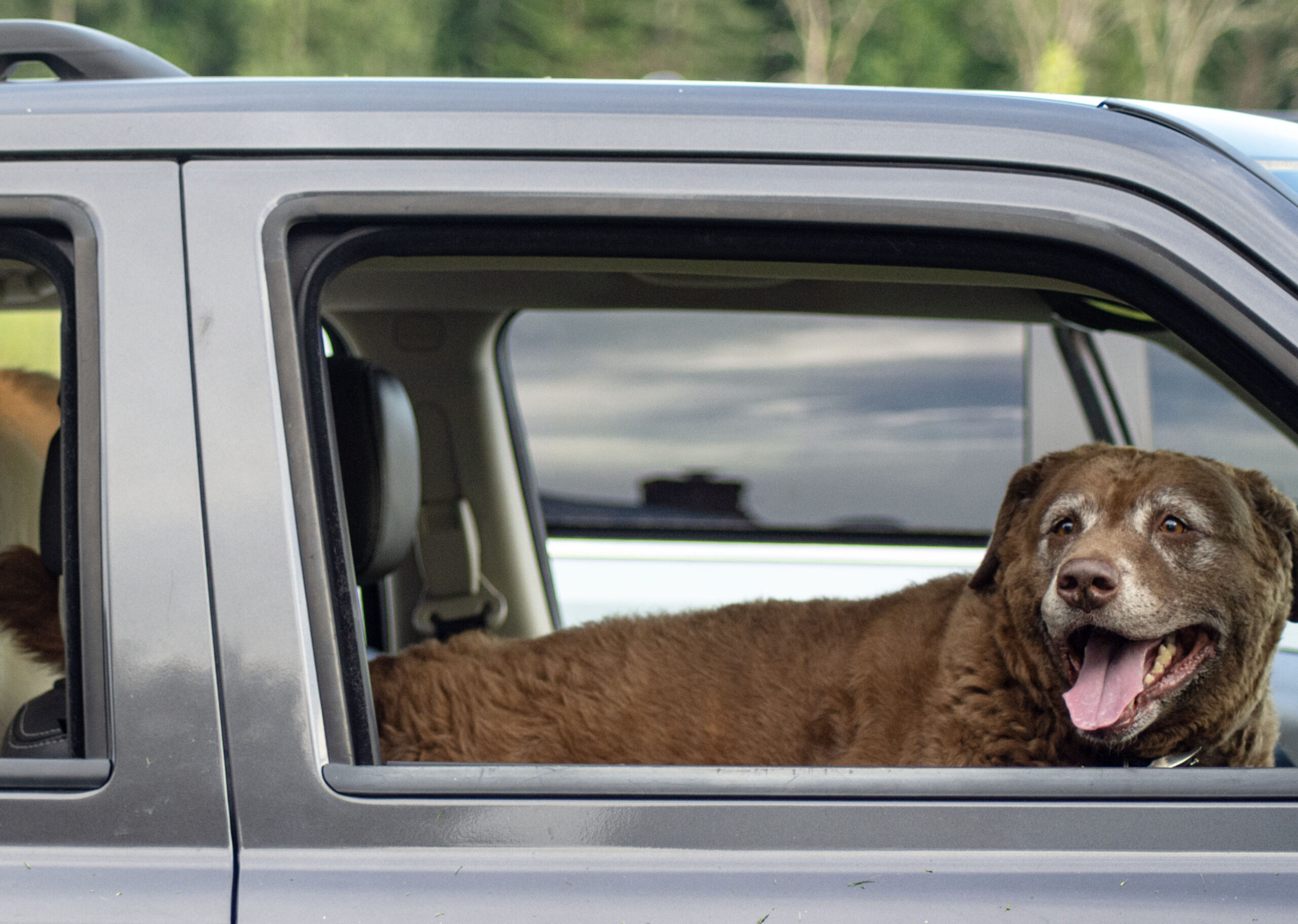
New federal dog importation regulations that go into effect Aug. 1 will require plenty of planning and possibly a trip to the veterinarian before taking your pet across an international border, including the one Maine shares with Canada.
In short, all dogs entering the United States must appear healthy upon arrival; be at least six months old; be International Standards Organization-compatible microchipped; be vaccinated for rabies; and be accompanied by a CDC Dog Import Form online submission receipt. Americans traveling to Canada or other countries will encounter a thorough check of their dog and its documentation upon returning through customs at U.S. border crossings.
The new rules make previous Centers for Disease Control travel recommendations for dogs mandatory, according to Pablo Jarrin, a USDA accredited veterinarian in Veazie.
The CDC published its new dog importation regulations on May 13, 2024, and they are available on the Federal Register, according to Ryan Brissette, public affairs officer for Customs and Border Protection. Additional information can be found at cdc.gov/dogtravel, he said.
The more stringent regulations were established to prevent the spread of rabies and more closely align with World Health Organization’s standards for dogs, according to the CDC. Additionally, they address concerns about dogs coming into the United States from high rabies risk countries and fraudulent documentation.
Jarrin said the old regulations required proof of rabies vaccination and it was strongly recommended that dogs be microchipped and have an international health certificate. Now it is mandatory. He also said pets will have to be seen by a veterinarian within 10 days of travel.
“We see the patient and if we notice coughing, or a fever we want to investigate it a little bit more to see the cause to make sure when they travel they don’t spread the disease,” he said.
Lorraine Monfils, the founder of Ark Animal Sanctuary in Houlton, has been going to a veterinarian in Canada for 15 years with her own animals and the Ark Animal Sanctuary animals. But because of the new rules, the sanctuary will no longer be able to take dogs, she said.

“We are a border town, I am not the only one who takes my animals to Canada,” she said. “There are tons of people who take their animals to a vet in Canada because the local vets were not accepting new clients. This pretty much locks some people out of vet care.”
The CDC Dog Import form includes two photos of your dog, one of the face and one of the body, the ISO microchip number and rabies vaccination information. The vaccination must be administered by a USDA accredited veterinarian, but not all vets have that distinction.
Jarrin explained that when vets complete veterinary school, they can go for extra training completed by the USDA. The training includes protocols related to public safety, zoonotic diseases and the importing and exporting of animals, Jarrin said.
At Veazie there are three USDA-accredited vets and according to the regulations they must examine the dog and complete the import form.
Most of Veazie’s clients are seeking documentation for travel to Canada, but he has completed certificates for travel to other countries as well, according to Jarrin, who is USDA-accredited.
“The other day I did one for someone traveling to Greece,” he said. “Every country has different requirements.”
The clients come in and veterinarians check to make sure the pet has a microchip and that the rabies vaccination is up to date. Because they file the dog import form through a special portal , the process is fairly quick because everything is online, he said.
The CDC warns travelers to plan ahead. In a message to pet owners, the CDC suggests allowing plenty of time to apply for the permit because you must gather documents and photos and because of the high volume of applications it receives.
They warn it can take up to 30 business days or six weeks for the CDC to process a complete and valid permit application. If there is inaccurate or missing information, the process will take longer.
If an older dog is not microchipped, it is a very simple procedure to have it done, he said.
Monfils is concerned about the new regulations and has been making many calls to customs and her vet in New Brunswick to make sure her dogs will get back into the country when she travels to Canada, she said.
“They are making it more difficult for a dog to come into the United States than a human being,” she said. “They told us that if you don’t have the proper documentation to get back into the United States your dog will be denied access and sent to a shelter.”
The CDC confirms that if the rules are not followed, your dog will not be allowed to enter the United States.
Cats are not required to have proof of rabies vaccination for importation into the United States.
Customs and Border Protection encourages the public to utilize the website to access CDC’s new DogBot tool to determine what rules apply to your dog based on the dates of travel and where your dog is traveling from, Brissette said.







